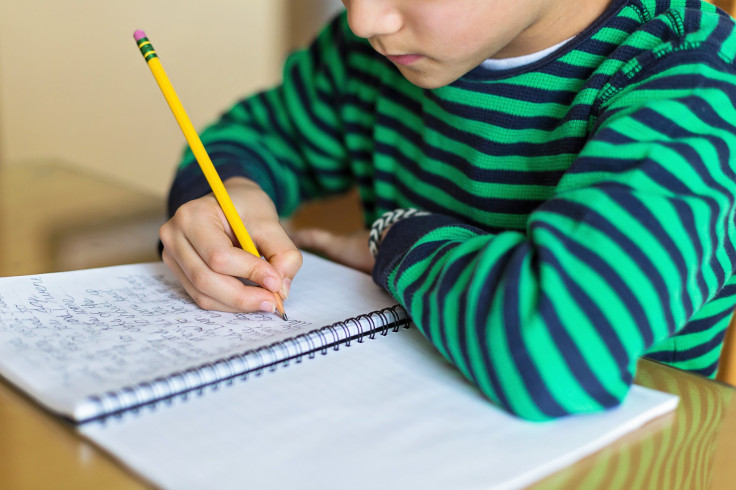Understanding Your Child's Learning (And Emotional) Challenges: A New Online Resource For Parents

How do we talk about children who don’t do well in school? In the somewhat distant past, we spoke of them in line with an ethical model; students who didn’t pay attention to their teachers, for instance, were “bad” kids refusing to “behave properly.” In the more recent past, we relied on a medical model and so would refer to the same kids as “suffering” from a brain “disorder...” Attention Deficit Disorder most likely. Understood.org, a new, free online resource for parents, hopes to move us beyond these tired models to a more evolved way of thinking about children who experience difficulty learning. By framing and expressing this issue in a new way, the many children who currently flounder in the nation's classrooms may locate their own mental strengths and assets and so develop their minds to the fullest extent possible.
One in five people in the United States between the ages of 3 and 20 has problems with reading, writing, math, focus, and attention, according to Understood.org. The organization’s Thursday afternoon press event, taking place in a well-lit, overly white space more similar to an art gallery than a conference center, began with, of all things, each participant receiving an atrociously misspelled name-tag.
As Shelly London, president of Poses Family Foundation, one of 15 organizations sponsoring the new website, explained, this gesture was intended to give us all “a small taste of what it feels like to be a person with a learning disability.” The site itself provides interactive simulations designed to help parents experience the world through their children's eyes, as well.
“This tool absolutely gives parents an understanding of their children,” Rachel Vitti, a former teacher and mother of four children, two of them diagnosed with learning disabilities, told Medical Daily. When working with her own son who has attentional issues, she found herself unable to understand what he might be going through. “Are you blind? Pay attention!” Vitti, a self-confessed former straight 'A' student, recalled saying to her eldest son. “No parent wants to admit this is happening,” she said, explaining how what seems like an academic problem soon develops into social and emotional issues as well. Her son, a handsome and mature eldest child, nodded his head in agreement. "I stopped trying," he told Medical Daily.
Eventually, it becomes overwhelming for your child, Vitti, a vital yet humble woman, said, and so as the parent you must “raise your hand and admit there’s an issue.”
With Understood.org, parents who have raised their hands will be able to access much needed tools and advice in both English and Spanish to help them guide a troubled child’s progress. Featured on the website are apps and games targeted for specific ages and issues, practical tips for parents dealing with challenges, such as school projects and completing nightly homework, and a system offering personalized recommendations for help. Most importantly, the website is cultivating an online community for parents to chat with others who face the same issues, parents such as Michelle Smalley.
Pressure Points
Smalley is the mother of a son who was diagnosed with dyslexia at an early age and now attends a special academy equipped to help him. She spoke of the “pressure points” — the moments of transition when a child is most likely to get noticed as having a learning disability. Essentially, four pressure points occur when a child begins school, when a child moves from elementary to middle school, when a child transitions from middle to high school, and when a child transitions into college or career.
Smalley spoke of other mothers, “who’ve been in denial,” coming to her and asking for advice now that their children have graduated to Middle School, where their classroom abilities are questioned. As she sees it, what could be swept under the rug at an earlier age is now an obvious problem. Sooner or later many children will encounter a pressure point and their parents will be forced to face the same issues Smalley has confronted. A resource like Understood.org can help smooth the way. “It breaks my heart to know if he did not have this opportunity, he would be just another little boy who is depressed and unhappy and suffering,” she told Medical Daily.
Boys with learning issues were mentioned frequently at the event, however given a little help from Understood.org, this stereotype might soon die. “Statistically, more boys than girls are diagnosed with a learning disability, but I believe the numbers are the same for both, it’s just girls are not as disruptive so they don’t get diagnosed as often,” said Dr. Ned Hallowell, an author and psychiatrist who teaches at Harvard. He explained his view that many adult women who have been given a diagnosis of depression actually may suffer from an attentional or organizational issue. Having “worked in the trenches” for years, Hallowell says his "learning disabled" students need to understand they are not damaged, it's just they possess “the mind of a Ferrari and the brakes of a bicycle.”
"'But you're lucky because I am a brake specialist,' I tell them," he said. Their special minds mean these kids also frequently are socially awkward, unable to read social cues.
With Understood.org, though, parents will be able to anticipate the academic, emotional, and social challenges faced by their children and guide them with skill. “Never before have we had the ability to disseminate this information so widely,” Hallowell said. “This is an amazing resource.”



























